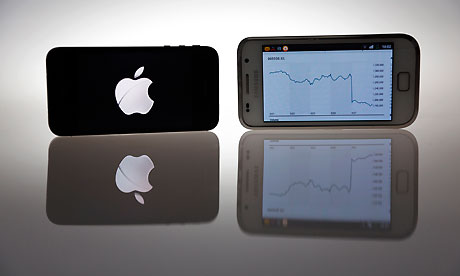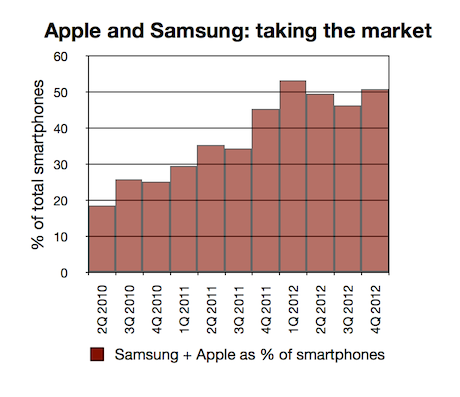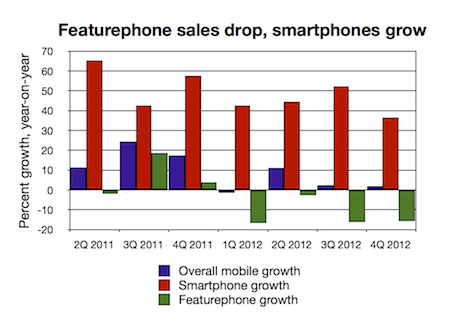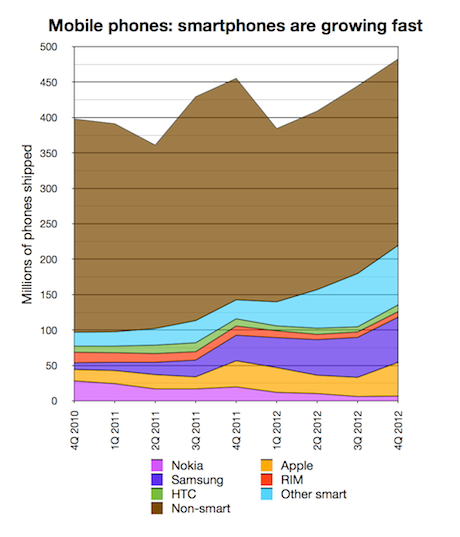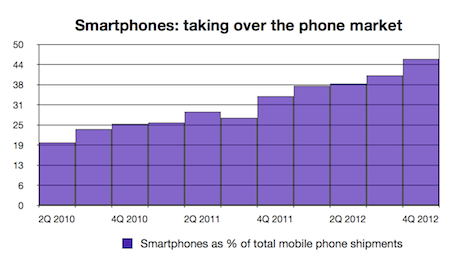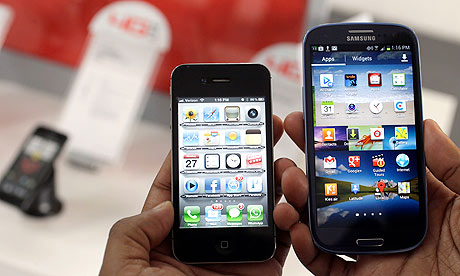Boot up: WhatsApp privacy bust, iOS parents, H.265 comes closer, and more
Plus
Mayer's plans for Yahoo (redux), the challenge of Office365 for CIOs,
AppleTV gets Bluetooth, Samsung's commission payments and more

"Deleting mum's work emails is a great game!" Photograph: Dimitris Legakis/D Legakis Photography/Athena
A quick burst of 8 links for you to chew over, as picked by the Technology team
You can follow Guardian Technology's linkbucket on Pinboard. To suggest a link, either add it below or tag it with @gdntech on the free Delicious service.
source:guardian.co.uk
WhatsApp breaches privacy laws >> CBC News
The popular mobile messaging app WhatsApp breaches Canadian and Dutch privacy laws by forcing many of its users to grant access to their entire address book in order to use it, Canada's privacy watchdog has found in a joint investigation with Dutch authorities.Doubt that Germany or France or even the UK will be thrilled either.
Dear Tim: Open letter from an iDAD, Apple iOS parental controls needed >> Anewdomain
For starters, I need to be able to lock down apps -- and please let me select exactly which ones. And I need to be able to lock them down to a master time limit and maybe even a time limit of daily use per app. I need to be able to tell my son's Apple iPod and Apple iPad that he should only be able to use these devices and the apps on them during times I specify.If only Windows Phone were available on tablets, his problem would be solved.
And that's not all.
I want to tie this functionality down to a parent-child related account -- separate from my Apple ID. It should know, for example, the relation between my Apple devices and his -- for instance, if message limitations are close or if time limits like the ones I suggest above run out. Can you do that? I also want same controls to work if I later get my son an iPhone. That would allow calls to certain numbers at all times - and others at certain times - and it would work even if I turn off games and text that calls and email could be checked during certain time frames.
Ubuntu phones to come with a terminal -- prepare your command line skills >> Ars Technica
The Ubuntu phone operating system will come with a terminal application. That's right: experienced users will have access to the full power of the Linux system running underneath the phone's shiny graphical user interface."Yes, grandma, type 'sudo rm -rf', and we'll be finished."
Yahoo CEO Marissa Mayer to bring company back to its roots: "It's the web ordered for you" >> TechCrunch
Yahoo plans to compete on mobile by way of partnerships, not hardware or operating systems, Yahoo CEO Marissa Mayer told Bloomberg at the annual World Economic Forum meeting in Davos, Switzerland, where the subject of the talk was the future of Yahoo's business. The talk also delved into other areas of focus, including Yahoo's homepage, media properties, and where it could compete on search and personalization going forward.As someone else observed, it's hard to win if you're in a three-legged race.
"I think that's it's really important," Mayer said of competing on mobile. "If you look at what's happening in terms of the shift to mobile, the number of mobile phones and smartphones in the world has tripled in five years. Tablet sales will outsell laptops this coming year, if predictions hold true," she added.
British retailers recommend Samsung over Apple >> Telegraph
Apple and Samsung were just as likely to be promoted by advertising in the store or the shop window but sales assistants were far more likely to recommend Samsung.More than likely.
In a press release, Informa said it was "likely that sales assistants see the Samsung devices as a safe bet to earn greater commissions".
Apple TV Software Update 5.2 adds Bluetooth input, more >> iLounge News
Apple today released Apple TV software version 5.2 for the second- and third- generation streaming media players. Arriving alongside iOS 6.1, the update brings enhanced support for iTunes in the Cloud, the addition of the Up Next feature introduced in iTunes 11, and long-awaited Bluetooth keyboard support. Apple notes that the Apple TV can now be controlled by Bluetooth wireless keyboards--the first official feature to unlock Bluetooth hardware that sat unused in the devices up until now.Hmm, keyboards, huh?
What CIOs need to know about Office 365 Home Premium >> ZDNet
Ed Bott:Like it or not, Office 365 Home Premium is going to show up in your business on consumer devices: Your employees are likely to be using it on their own laptops and tablets, and they'll probably be connecting to your company network from their home PCs.Wonder if the same move will save it this time.
The trouble is, the license for Office 365 Home Premium specifically excludes those uses. Here's the relevant portion of the license agreement:
Only one person at a time may use the software on each licensed computer or licensed device. The service/software may not be used for commercial, non-profit, or revenue-generating activities.If that prohibition sounds familiar, it's because the same issue arose when Microsoft released its Surface device, which includes a similar prohibition in the Office 2013 RT license agreement. That issue was eventually resolved with a change to the terms of Microsoft's Volume Licensing program.
New video codec to ease pressure on global networks >> ITU
A new video coding standard building on the PrimeTime Emmy award winning ITU-T H.264 / MPEG-4 AVC was agreed by ITU members today [25 January 2013].Great news. Though you feel sure there will be court battles over it at some point in the future. (Thanks @Clarkeviper for the link.)
The new codec will considerably ease the burden on global networks where, by some estimates, video accounts for more than half of bandwidth use. The new standard, known informally as 'High Efficiency Video Coding' (HEVC) will need only half the bit rate of its predecessor, ITU-T H.264 / MPEG-4 Part 10 'Advanced Video Coding' (AVC), which currently accounts for over 80 per cent of all web video. HEVC will unleash a new phase of innovation in video production spanning the whole ICT spectrum, from mobile devices through to Ultra-High Definition TV.
ITU-T's Study Group 16 has agreed first-stage approval (consent) of the much-anticipated standard known formally as Recommendation ITU-T H.265 or ISO/IEC 23008-2. It is the product of collaboration between the ITU Video Coding Experts Group (VCEG) and the ISO/IEC Moving Picture Experts Group (MPEG).
You can follow Guardian Technology's linkbucket on Pinboard. To suggest a link, either add it below or tag it with @gdntech on the free Delicious service.
source:guardian.co.uk























